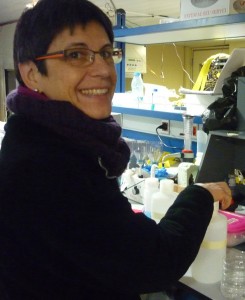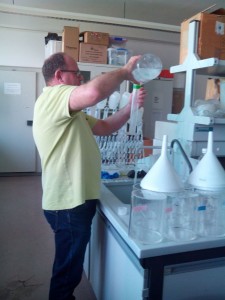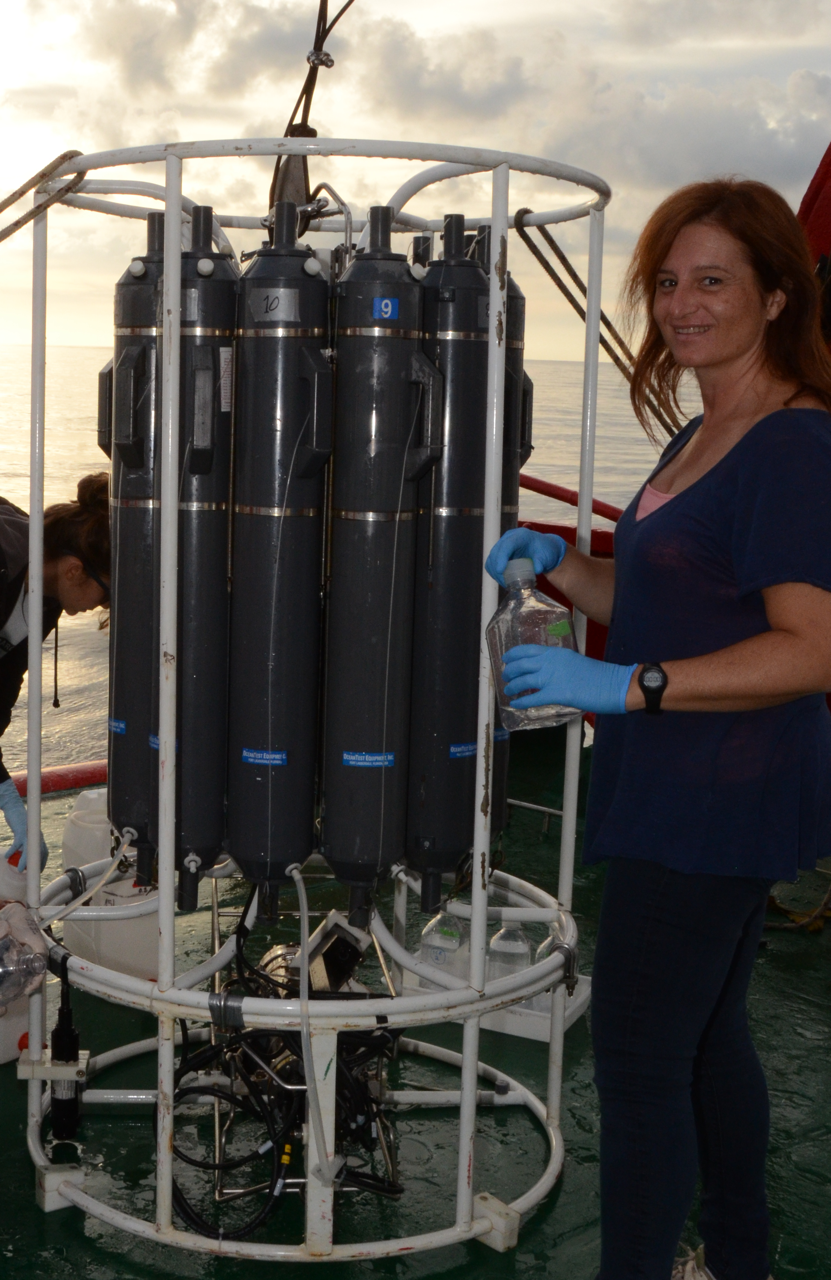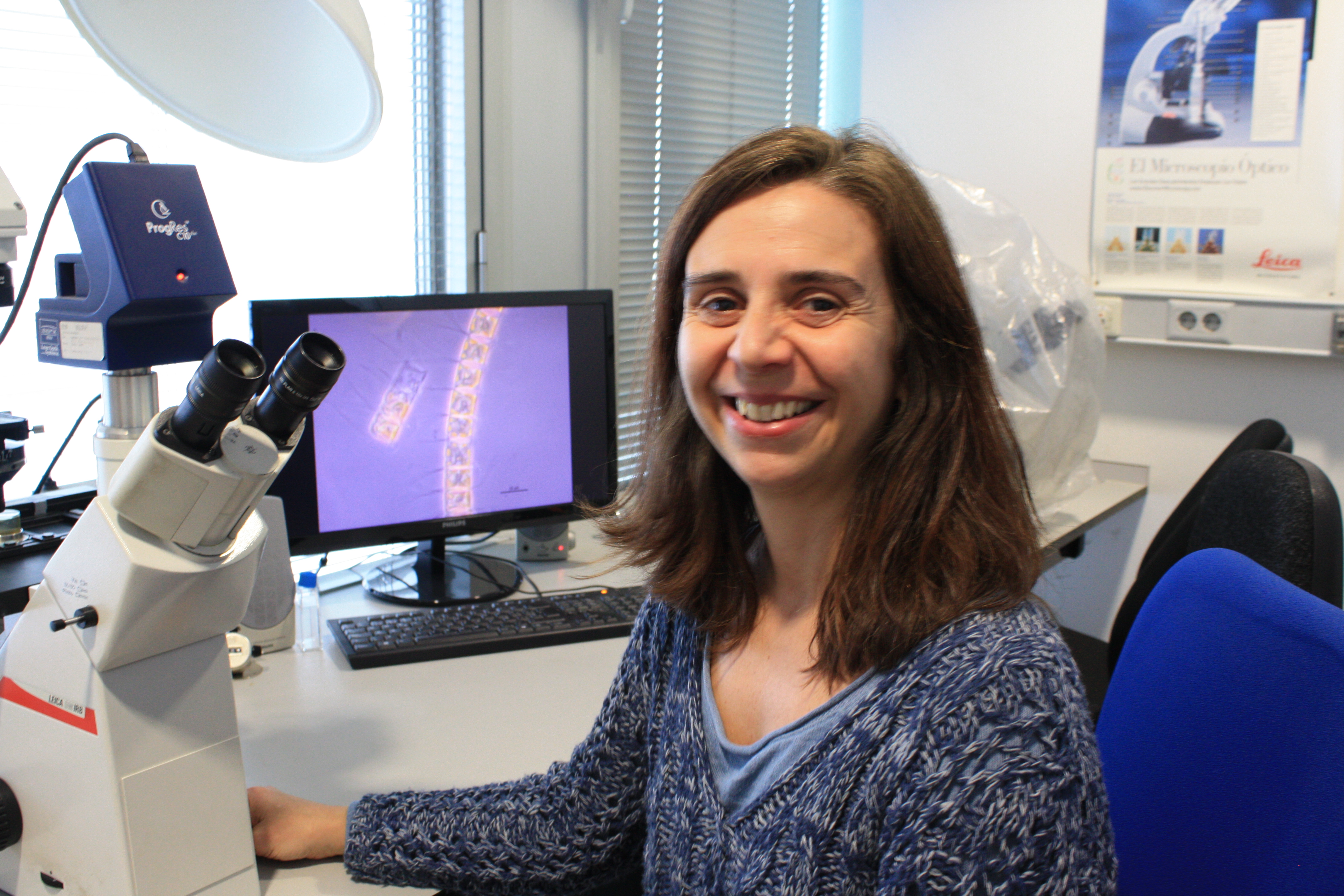Partners
All of our team is member of the Aquatic Microbial Ecology Group of the Marine Sciences Institute of CSIC. Do you want to know each one of our scientists?
IYou can know more about them in the team website.

My role in this project
I'm the IP.
My research interests
My scientific objectives are related to plankton ecology. I am interested in understanding how nutrient fluxes are mediated by trophic food webs and how these fluxes are influenced by the variability of physical factors. In particular, I have studied the effects of small-scale turbulence on nutrient uptake by microorganisms, stoichiometry of organic matter and plankton interactions. Recently, I have started to study the spatial distribution of fluorescent dissolved organic matter (FDOM) in coastal and open waters, and also the production and degradation of these fluorescent compounds by photochemical and biological processes. To achieve my objectives I combine field work with laboratory experiments.

My role in this project
My role within DOREMI is to investigate how turbulence can affect the uptake of dissolved organic matter (DOM) by bacteria. Turbulence increases the diffusion of solutes towards cells and the process depends on solute diffusivity and on particle size. The issue requires assessing DOM of different molecular weights and looking into morphological changes of bacteria and bacterial aggregates, in order to see differential bacterial growth in turbulence conditions with respect to still water.
My research interests
Aquatic microbial ecology with special emphasis on marine pelagic systems. Small-scale turbulence and its effects on microbial biomass and rates.Measurement of small-scale turbulence in laboratory set-ups.Determination of oceanic turbulence and its intermittency. Developmentof turbulence-generation techniques for laboratory set-ups. Protozooplankton grazing and its role as bacterial biomass controler. Oligotrophic systems. Nutrient limitation in phytoplankton growth. Effects of turbulence on phytoplankton growth in relation to organism size. Microbial-dominated systems versus zooplankton dominated systems. Coastal ecosystem drivers and dynamics. Atmosphere-ocean interactions. Aerosol impact on marine ecosystems.

My role in this project
My role in Doremi is to determine the role of bacteria in the degradation of organic matter ad different depths. This is being done both in situ, through de determination of ectoenzyme activities and utilization of sole carbon sources (Biolog plates) and with experiments of addition of labile and recalcitrant carbon sources.
My research interests
My main interest is the role of microbes in the utilization of organic matter and nutrients in aquatic ecosystems. I have uniquely combined the measurement of extracellular enzyme activities and the assessment of the use of sole-carbon-sources in experiments and in the field to gain a comprehensive understanding of organic matter utilization in marine environments. I have always addressed the most appropriate system and scale of study to answer specific research questions. This has taken me from polar ecosystems to lakes and from global oceanic scales to microlayers, addressing aspects related from global change (acidification, Arctic ice melting) to bacterial physiology. Recently, I have become also interested in the link between microbes and the atmosphere and the impact of atmospheric inpuits on marine microorganisms.
My role in this project
My research interests
My scientific objectives are

My role in this project
I'm a member of DOREMI group as expert in phytoplankton. I take part in studies that link taxonomic composition of phytoplankton with different aspects of organic matter such as lability and its decomposition rates or its fluorescent dissolved fraction.
My research interests
My interests are focused on the study of phytoplankton based on their size distribution, chemical composition and taxonomy in relation to different environmental parameters such as nutrient concentration and the level of water turbulence. In recent years I have focused my research on the study of coastal phytoplankton (including potentially toxic or harmful species) as an indicator of water quality and also its long term spatio-temporal variability in relation to physical-chemical water variables. Currently, besides my participation in the project DOREMI, I am studying the diversity of one of the most abundant genera of diatoms (Chaetoceros) from both morphological and molecular point of view.

My role in this project
The remineralization processes of the dissolved organic matter (DOM) remain still unknown. A fraction of DOM emits fluorescent light when it has been previously irradiated, it receives the name of fluorescent DOM (FDOM). The FDOM in aquatic environments can have autochthonous origin (if it is generated by marine bacteria) or allochthonous provenance (if it is generated from terrestrial sources). The optical properties of FDOM serve as a proxy for tracking changes in the organic matter composition and indirectly for quantifying the degree of prokaryotic activity in different ecosystems. From the deep ocean waters of the South Atlantic Ocean to the coastal waters of the NW Mediterranean, we have performed experiments varying the inorganic and organic sources of nourishment for the microbial populations in order to test the different mechanisms that hinder the total DOC remineralization.
My research interests
My research field is marine biochemistry. The aim of my thesis is to understand the decomposition of organic matter by marine prokaryotes. Studying the spatial distribution of refractory organic matter (RDOM) in different ecosystems, its formationand decomposition rates, as well as quantifying bacterial processes associated to the degradation of DOM will give us important insights on biogeochemical cycles.


